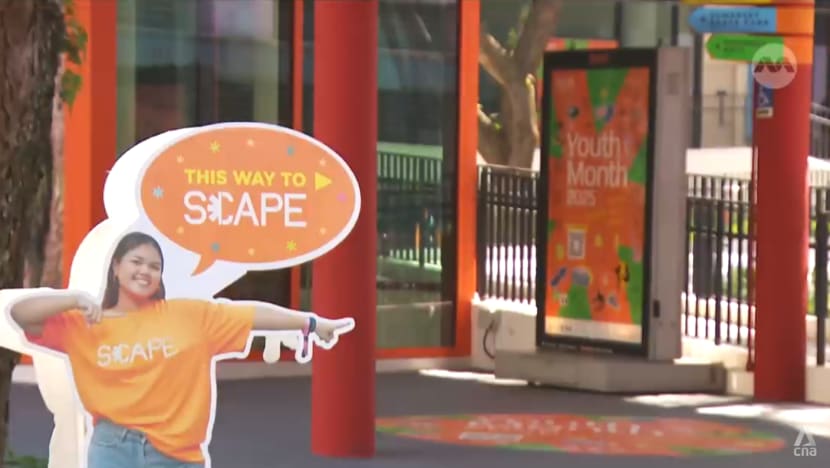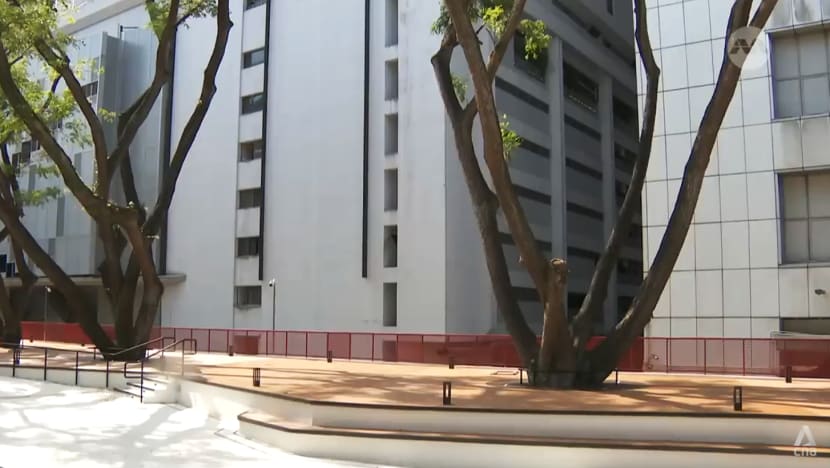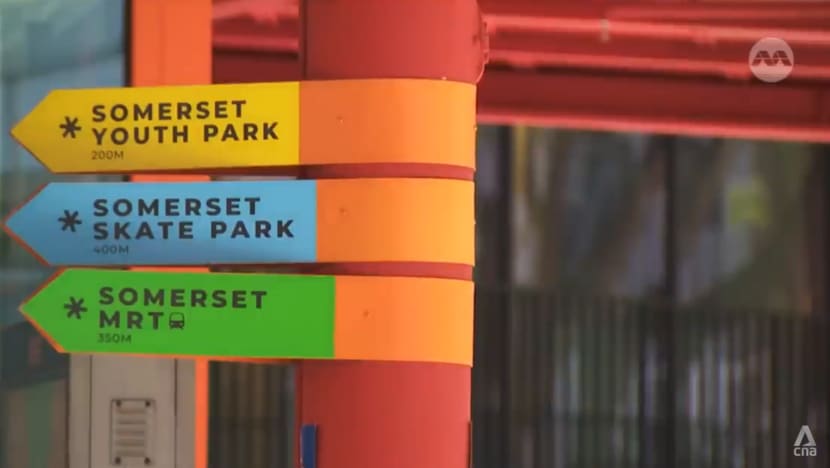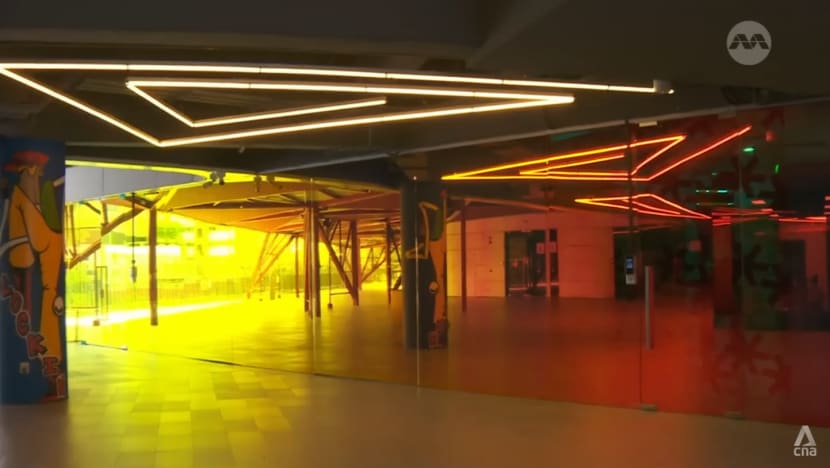*SCAPE to reopen in November, offering more room for programmes aimed at youths
Its management is expecting an annual footfall of more than 2 million people and hopes to reach over 30,000 youths per year.

Youth hangout spot *SCAPE will fully reopen in November this year.

This audio is generated by an AI tool.
SINGAPORE: Youth hangout spot *SCAPE, will fully reopen in November this year after three years of upgrading works, with an expected annual footfall of more than 2 million people.
The space, located in the heart of Orchard Road, will shift its focus from retail offerings to youth-led programmes such as career pathways and community building.
It plans to add 30 per cent more openings for such programmes. Through this, it hopes to reach more than 30,000 youths every year, said Mr Ethen Ong, deputy executive director of *SCAPE.
He added the change in focus was due to the impact on retail businesses by e-commerce as well as building a community for youths, after noting a demand for such spaces because of the COVID-19 pandemic.
Mr Ong told CNA: "(We) got our feedback from our youth that they would like to have more sitting capacity, more open spaces for them … to catch up with friends and to connect.”
The plaza at the entrance to the refreshed *SCAPE previously contained retail spaces, which have been replaced by open communal spaces for youths to use as a stage for concerts and performances.
WHAT DOES THE NEW *SCAPE OFFER?
Mr Ong said the new open plaza was designed to allow youths to run events and performances.

The redeveloped *SCAPE is part of the SG Youth Plan, a five-year blueprint on how to support the nation's youth that is set to be released in 2026.
Youths looking to host events such as exhibitions can also benefit from lower rental fees when applying to use spaces in *SCAPE that are specially allocated for youth-run programmes, he added.
Mr Ong noted that the rent will be cheaper by around half compared to other locations in the shopping belt and the space may also waive the rent for programmes upon application review. Youths can also tap micro-grants for projects benefitting their peers.
*SCAPE’s chairman David Chua said that the rejuvenated space is part of a larger Somerset youth belt.
“(It) is the key node from which partnerships and programmes will then be able to spill over into the belt and give even more space and opportunity for our young people to showcase their talent," he added.

*SCAPE will partner nine organisations to help youths learn and engage with industries including wellness, artificial intelligence, urban sports, creative arts, media, entertainment and sustainability.
One partner, Lenovo Singapore, said it intends to show how opportunities in technology can benefit students before they enter the workforce.
Lenovo Singapore’s general manager Nigel Lee added that its programme will look at AI, augmented reality, virtual reality, robotics and more.
“(It) is about mentoring (youths), coaching them and (offering internships), making sure that they are ready for the real world once they leave school,” he said.
HISTORY OF *SCAPE
This is *SCAPE’s third revamp since it opened its doors 18 years ago.
*SCAPE was first established in 2007 at the Red Box, in response to a call for more youth-centric spaces.
Its own building was officially launched in 2010 and underwent its first revamp in 2012, when HubQuarters was introduced as a base for youth organisations and their development programmes.
It went through another rebrand in 2016, putting in place new facilities and platforms for entrepreneurship and volunteerism.
In 2022, *SCAPE was announced as part of the Somerset Belt Master Plan revitalisation effort.
The Ground Theatre and HubQuarters have remained open while renovations were carried out.

Property experts said community engagement is important in creating youth spaces that can thrive and succeed.
Mr Ethan Hsu, head of retail at property firm Knight Frank Singapore, said: “If you look at other countries where youth-centric precincts have been successful, places like Hongdae in Seoul and Harajuku in Japan … a lot of the activity is driven by the community.”
He noted that designing spaces for youth activities also requires an understanding of their diversity.
“We have … creatives … gamers, entrepreneurs (and) social activists. And … youth culture is constantly evolving … so without inviting them to become co-collaborators … to design the space or what (it) is used for, it's hard to say whether it will be sustainable,” added Mr Hsu.
















